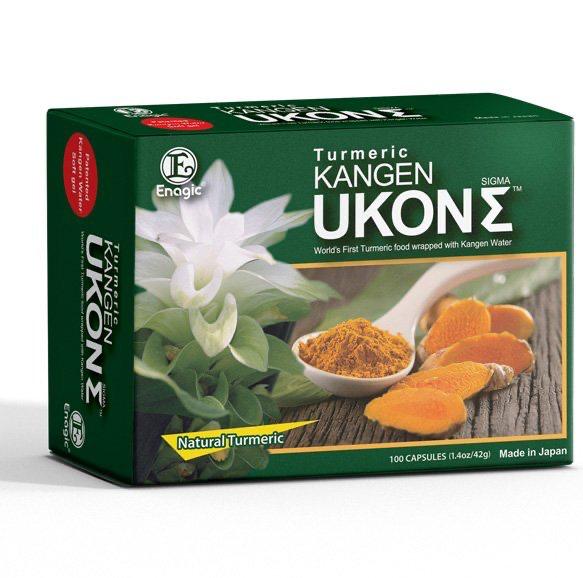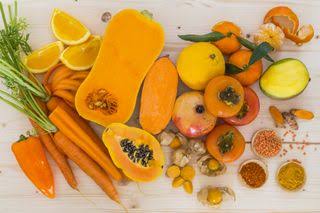6 Foods With More Vitamin C than an Orange
When it comes to getting enough vitamin C, oranges have reigned supreme as the go-to source. And with 70 milligrams of vitamin C in one medium-size navel orange, per the USDA, one orange is almost all you need to meet your daily dose (according to the National Institutes of Health, the suggested daily intake for vitamin C is 75 mg for women and 90 mg for men).
Vitamin C is important for collagen synthesis, keeping your immune system healthy, fighting free radicals in your body and boosting iron absorption for vegetarians and vegans. Most of us get enough vitamin C daily and aren’t at risk for a vitamin C deficiency. But when you’re looking for other ways to get this essential nutrient in your diet, here are six foods that have more vitamin C than an orange.
Broccoli
When people think of vitamin C, the first thing that probably comes to mind is citrus fruit. So, it might be surprising to hear that some veggies have even more vitamin C than an orange. According to the USDA, 1 cup of chopped broccoli has 81 mg of vitamin C.
 Learn More
Learn MoreKiwi
There are plenty of fruits that may not be on your radar that are packed with tons of vitamin C. For example, a single serving of kiwi—which is two kiwis—provides 137 mg of vitamin C, per the USDA. If you opt for the gold variety, according to the USDA, you can get nearly the same amount of vitamin C in just one gold kiwi as you can in two green kiwis.
While you can eat the skin of the kiwi (wash it first), most people like to remove it before eating. We love kiwi in our Passion Fruit Smoothie, Green Fruit Salad and Chocolate-Pistachio Kiwi.
Bell Peppers
Whether you’re dealing with the red, orange, yellow or green variety, bell peppers have more than enough vitamin C to meet your daily needs. According to the USDA, a 4-ounce serving (about 3/4 of a large pepper) of raw green bell pepper has 80 mg of vitamin C, while the same amount of yellow bell pepper has 184 mg, red bell pepper has 142 mg, and orange bell pepper provides 158 mg of vitamin C.
READ ALSO 10 Amazing Benefits of a High-Fiber Diet
If you can’t imagine biting into a bell pepper like an apple, try slicing them and dipping them into Classic Hummus or using them for this Roasted Bell Pepper Salad with Mozzarella & Basil.

Guava
This often-overlooked fruit is deliciously nutritious! According to the USDA, guava has just 37 calories, 8 grams of carbs, 3 g of fiber and 125 mg of vitamin C per fruit. Be sure to eat the rind, as that’s where much of the vitamin C lives.
If you’ve never eaten guava, some say it’s a cross between strawberry and pear in flavor. We love eating the whole fruit as is or cutting it up and adding it to fruit salad. You can also buy guava puree to use in recipes, like in the vinaigrette for our Ensalada de la Huerta con Vinagreta de Guayaba (Harvest Salad with Guava Vinaigrette).
READ ALSO 8 ways to increase your sexual libido
Pineapple
According to the USDA, a cup of fresh cubed pineapple has 79 mg of vitamin C—exactly what you need to give your immune system a little boost! With that said, it’s important to note that canned pineapple contains less vitamin C than raw pineapple. According to the USDA, a cup of cubed canned pineapple has just 17 mg of vitamin C per cup.
Aside from vitamin C, pineapple also helps build stronger bones and keeps your GI tract moving. With all its wonderful health benefits, it’s perfect for enjoying in a variety of different ways—including this Strawberry-Pineapple Smoothie or Pineapple & Avocado Salad.
Papaya
Another tropical fruit, papaya is very similar in texture to mango. According to the USDA, 1 cup of cubed papaya has 88 mg of vitamin C.
Papaya has been linked to some impressive health benefits, including strengthening the immune system, fighting cancer, decreasing inflammation and improving digestion. Cut it into bite-size cubes and enjoy it with some fresh-squeezed lime juice.
Contributed By Ally Sorrells













![The 17 Habits Of Truly Wealthy People That you can easily adopt now [Real powerful stuff]](https://worldfamilydigest.com/wp-content/uploads/2022/02/FA033A84-800B-424D-8DEA-2BB8AD9E91F6-100x70.jpeg)

